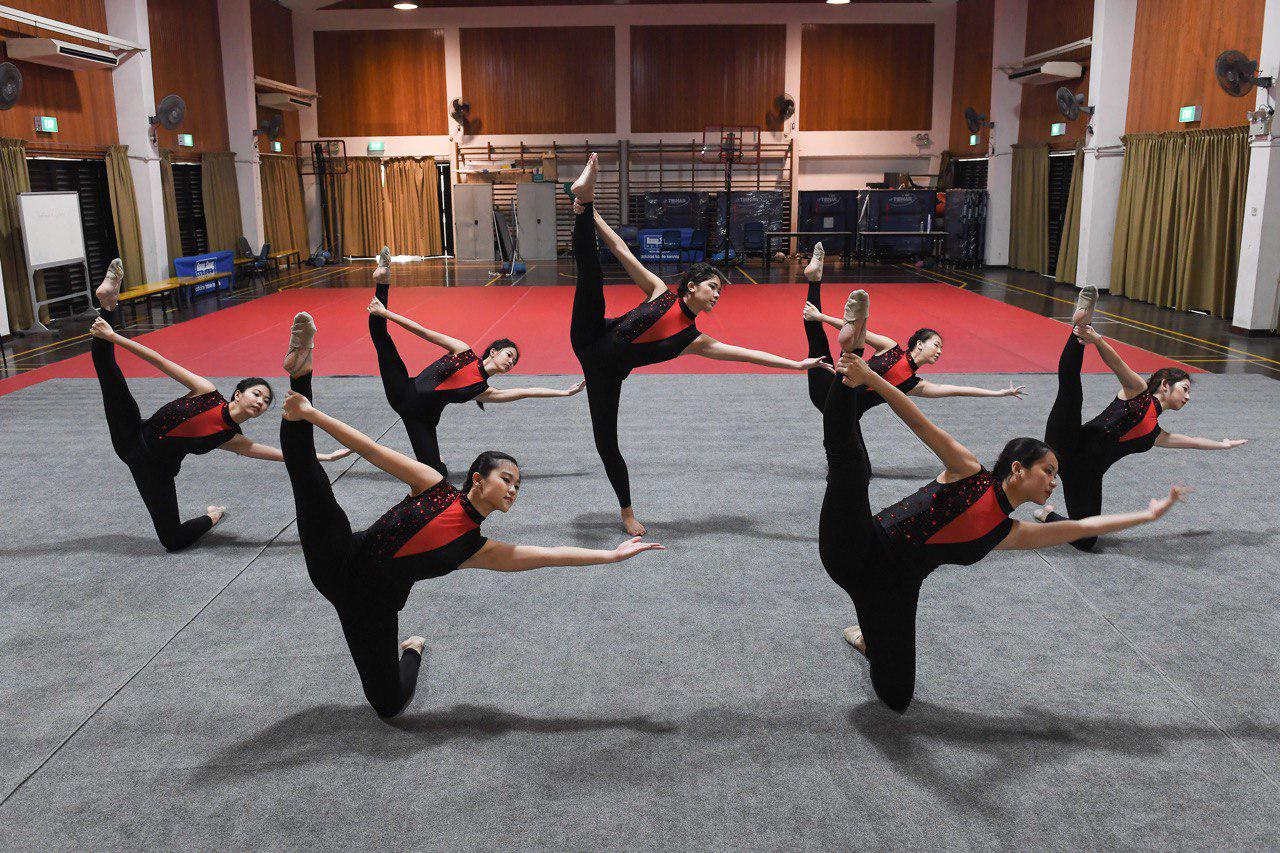You may have heard of the sport gymnastics.
There's artistic gymnastics, which includes the beam, bars, vault, the floor routine, and for men, rings.
There's also rhythmic gymnastics, which is a female-only variety that includes the use of apparatus like the hoop, the ball, the rope, the clubs and the ribbon.
And more recently, a new type of gymnastics has emerged overseas — it also looks set to be the most accessible and sustainable of them all: Aesthetic Group Gymnastics (AGG).
And a group of Singaporean girls is hoping to introduce this new sport to Singaporeans — men, women, children as young as eight years old, and adults older than 40 too.
What is AGG?
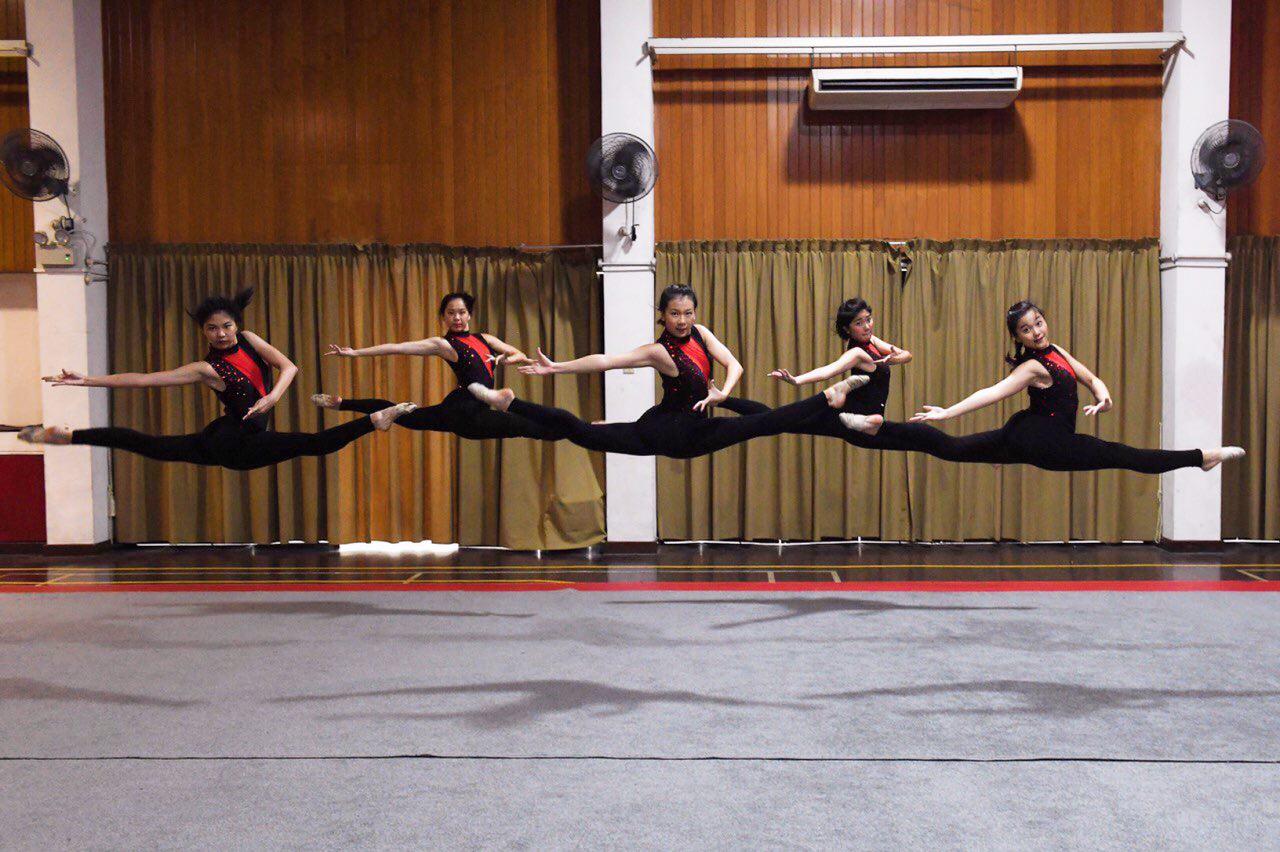 Photo by Haruhiko Otsuka, courtesy of Singapore AGG team
Photo by Haruhiko Otsuka, courtesy of Singapore AGG team
AGG is a group sport including between six and 10 athletes who perform a free floor routine that includes the display of a range of technical skills and artistic body movements.
It looks most similar to the rhythmic gymnastics group category of competition (which you may possibly have seen in the Olympic Games), except it doesn't involve the use of apparatus.
It focuses more on strength, sustainability and healthier postures, deliberately not favouring contortionist-looking backbends and oversplits like this:
 Canadian rhythmic gymnast Maria Kitkarska in 2014. (Photo by Andy Buchanan/AFP/Getty Images)
Canadian rhythmic gymnast Maria Kitkarska in 2014. (Photo by Andy Buchanan/AFP/Getty Images)
Or this:
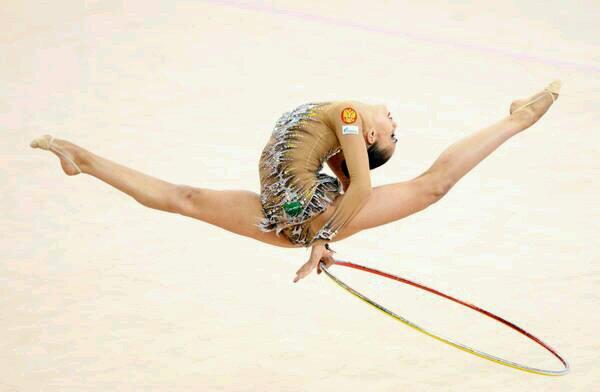 Photo by Paola Chiocchi
Photo by Paola Chiocchi
AGG in Singapore
It was developed, according to Wikipedia, from Finnish "Women's gymnastics" — naturally, therefore, its competitive teams are the strongest in the world and there are more than 300 competitive and recreational AGG clubs across the country.
But it's now done in a good number of Asian countries. In Singapore, it started with 23-year-old Miki Nomura, a Singaporean rhythmic gymnastics coach who discovered the sport in 2015 and invested six months training with an AGG team in Japan.
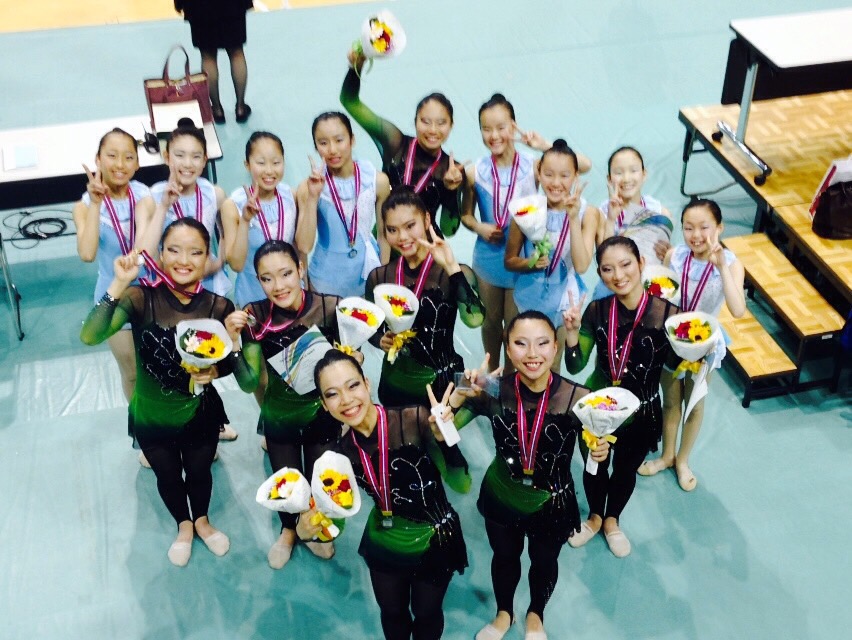 Photo courtesy of Miki Nomura
Photo courtesy of Miki Nomura
She met AGG coach Saori Kubota, who introduced it to her, and joined a team called Team Shoin (pronounced 'show-in') that competed in two international meets during her months there.
About a year later, she returned and, together with fellow coach Cecilia Chia, started asking their friends and fellow retired national rhythmic gymnasts if they would like to give this a try and, perhaps, form a team.
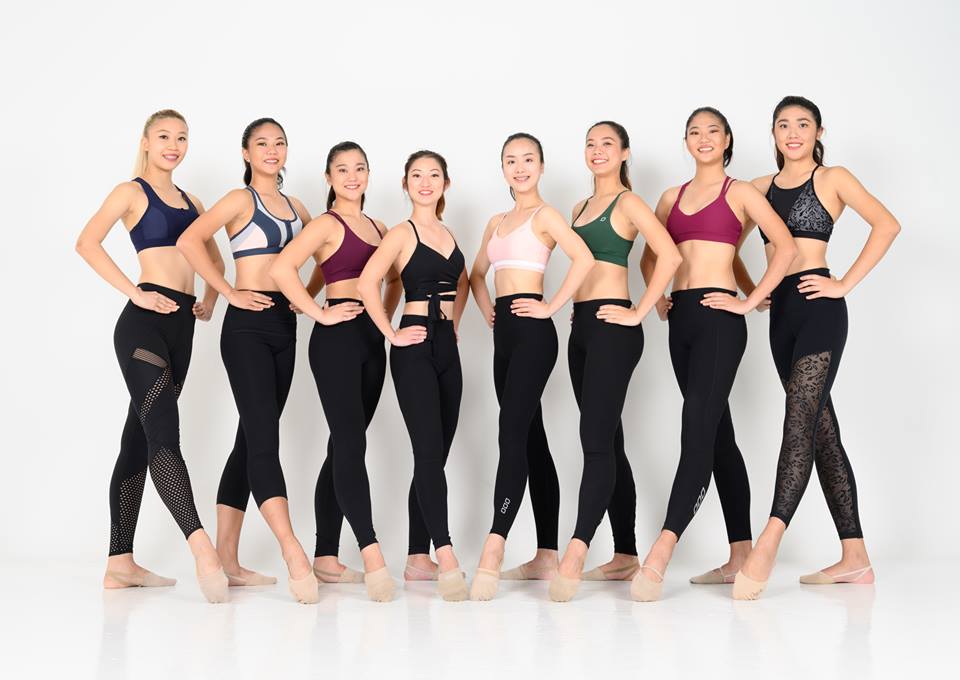 Photo by Shaun Ho, courtesy of AGG Team Singapore
Photo by Shaun Ho, courtesy of AGG Team Singapore
And ever since November last year, Singapore's national senior team (for athletes aged above 16) now has seven members: Nomura, Chia, physiotherapist Jolene Tan, rhythmic gym coach Ann Sim, compliance officer Rivia Ong, and twins Phebe and Michele Lau, who both attend the Singapore Sports School. An eighth member, Phaan Yilin, will not be competing with them at the upcoming World Cup championships in April.
Getting things off the ground
There may not be apparatus involved, but as with any new sport, the matter of affording all the requisite basics becomes an issue.
Where they can train, for instance, was a conundrum, until Nomura and Chia found the main hall at Shelton International College in Telok Blangah, which they now also use for some of the rhythmic gym club sessions they coach.
Rent for this, for the purposes of AGG training, sets the team back by S$800 every month.
 Photo by Haruhiko Otsuka. Yep, those grey mats are regular carpets.
Photo by Haruhiko Otsuka. Yep, those grey mats are regular carpets.
The school's administration also kindly allowed them to leave their training mats in the hall, which they had to procure themselves too — it's a carpet, in fact, that they paid S$5,000 for in Malaysia because proper gymnastics training mats are too expensive.
While other national teams train every day, the girls gather to train twice a week, currently — on Wednesday nights, from 8-10pm, and on Saturday mornings from 10am till noon.
Who coaches them, you might wonder? Indeed, that was another issue for the team, which chiefly trains without a coach.
Chia mentions that this makes synchronisation very tricky, because there's no one to watch them and ensure they are moving in sync — an important part of AGG, as well as a key component of competition judging criteria:
"We kind of do it by videoing ourselves, and then we actually go home and watch the video... but I think it's more of, like, we don't really have someone who is always there to give us more technical knowledge because over here we are also still learning.
So I guess that's one challenge of a new sport as well, because you don't really have someone who is very familiar who can give you some feedback on the spot... we would definitely improve a lot faster, you know, if we had that kind of help."
Nomura said her original Japanese coach, Saori sensei, also oversees the Singapore senior team, and flies to Singapore every two to three months.
And when she is here, the girls train intensively with her, running nightly sessions over a week. They also pay for her accommodation while here, as well as her coaching fees.
Says Chia:
"For now, because we're just starting out and aesthetic group gymnastics is also a pretty new sport, everything is currently self-funded by us.
So we have students, we have some working adults, and some of us we just started out, we just graduated so um, it's a little bit tough for us but we're still trying our best to make things work."
Intensive training camp in Japan
 The girls' coaches while in Japan, Saori sensei (in purple pants), Maria (in a blue top) and Makoto sensei (on the extreme right). Photo via AGG Team Singapore Facebook page
The girls' coaches while in Japan, Saori sensei (in purple pants), Maria (in a blue top) and Makoto sensei (on the extreme right). Photo via AGG Team Singapore Facebook page
Six members of the team also spent about a week over the Chinese New Year period this year at an intensive training camp in Japan, in daily sessions lasting from 9am to 6pm.
They each paid between S$1,500 and S$2,000 for the camp — flights, accommodation, food, training and transport inclusive.
While there, they also trained under a Spanish coach, Maria, who was there at the same time. Said Nomura, who was among the team members who went:
"It was a humbling experience to learn from Maria, who was truly professional and inspiring. We learned so much within the short six days that we were there, and this trip has also undeniably strengthened our team dynamics."
Thankfully for the team, though, one of the three coaches who worked with them in Japan, Makoto-sensei, will be flying to Singapore and will stay here from March 12 to coach them here intensively up to the World Championships in May, to be held in Spain.
Organising first-ever Singapore-hosted World Cup
It might, therefore, seem a little crazy to discover that Nomura's team is also organising this year's AGG World Cup, which for the first time will be held in Singapore.
Japan was initially supposed to be the World Cup's first Asian stop, but following some issues the organisers approached Nomura and asked if her team would be up to the task.
And with that, Nomura said she, Chia and two others who are assisting with organising the events come April 1-4, will be receiving a total of 96 teams from 13 countries, in four different competitions:
- The AGG World Cup,
- The AGG Challenge Cup,
- The 4 Continents' Championships, and
- The AGG Singapore Cup.
Singapore's senior team will compete in all but the Challenge Cup, which is for junior teams aged 14-16. Nomura, together with three other members of her team, is also training two children's teams (for the 8-10 and 10-12 age groups) who will compete in the 4 Continents' Championships and the AGG Singapore Cup.
From there, they will head on to the World Championships, the biggest competition in the annual AGG calendar, in Spain.
D’Gymnastique Academy, a local company founded by Nomura and Chia, is now a B-member of the International Federation of Aesthetic Group Gymnastics (IFAGG), as the only registered organisation that represents Singapore.
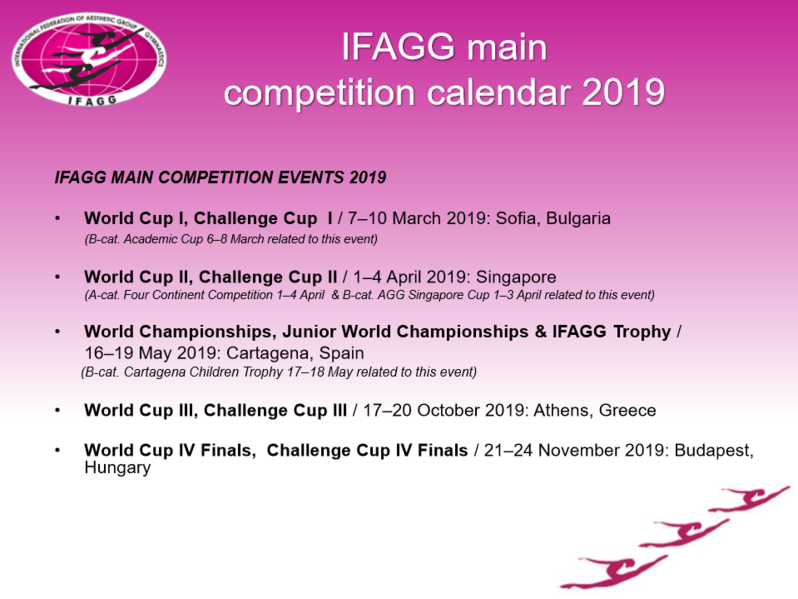 Image via IFAGG website
Image via IFAGG website
The trouble with introducing a new sport
With all this to contend with, you can imagine the sheer amount of work Nomura, Chia and their team have on their plates.
The financial outlay presents a significant challenge, too, for a group of young women — some still in school, some just out of school, and others only working for a couple of years — so institutional support would have helped a great deal, especially since they are organising a global championship event.
Getting that, however, has according to Nomura been a fruitless effort, unfortunately — to begin with, Singapore Gymnastics, the national sports association of which the Rhythmic Gymnastics Association of Singapore is also a member, cannot recognise AGG as an official sport.
This being because artistic and rhythmic gymnastics belong to the same umbrella international federation (Fédération Internationale de Gymnastique), but aesthetic group gymnastics has its own separate international federation — the IFAGG.
And without Singapore Gymnastics's backing and recognition, Sport Singapore, the government agency overseeing sporting activity in Singapore, has not been keen to lend support to the team's efforts or to the event.
Nomura says the team definitely has the support of the IFAGG, but money and logistics-wise, they are largely on their own, tasked with managing organisation of all the events.
So strapped they are financially, in fact, that the team is borrowing their competition costumes from a Finnish AGG team.
The biggest thing that will help them now, though, she says, is if they can find financial support, which Nomura hopes will come from greater awareness and appreciation, as well as participation, in the sport:
"Personally I feel (AGG) is a very inclusive sport. Like it can be from children — the competitive level you can do from eight-10... you don't really see the rhythmic gymnasts competing at eight years old... but here you have competitors from eight years old and then all the way to seniors, really really seniors, so... I mean there's no age limit and there are people who are 40; 30, 40 who are still competing, which is really amazing, and you don't really see this in rhythmic gymnastics.
So to me it's so inclusive and I just hope it will really spread and become big, and there's going to be mixed teams so men can also join! Yeah, so everyone can join!"
A sport that is beautiful, accessible and physically sustainable
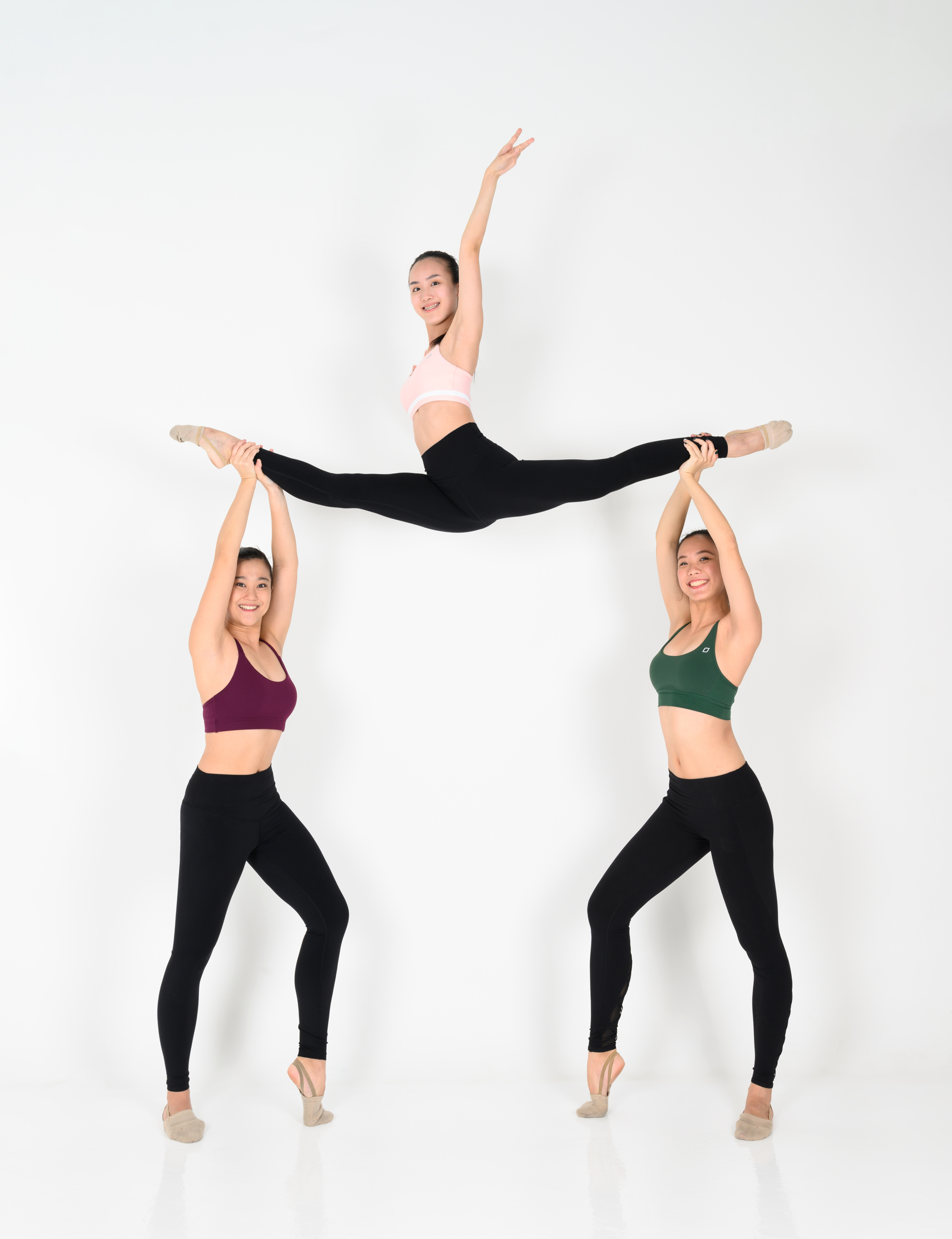 Photo by Shaun Ho (www.shaunho.com)
Photo by Shaun Ho (www.shaunho.com)
Talking to Nomura and her team, I can feel the girls' enthusiasm and passion in making this happen — that funding is an issue is a pity for a sport that potentially can be both sustainable and inclusive for the longevity of an athlete's career.
For someone who has never been a rhythmic gymnast before like Ong, who has dance background and natural flexibility, doing gymnastics has always been a childhood dream of hers that she can finally realise with AGG:
"Two years ago I heard of this from somewhere and I was quite excited about it, so then at that time I guess, I had a conversation with Miki (whom she knew from dancing together in the National University of Singapore Dance Ensemble) that maybe one day she could set up a team...
For me, AGG has a good mix of liquid movements, expressiveness and technical skills, which is what I like... and it also has this body wellness component to it in a sense that they don't expect you to, you know, over-split too much, which may not be healthy for the body."
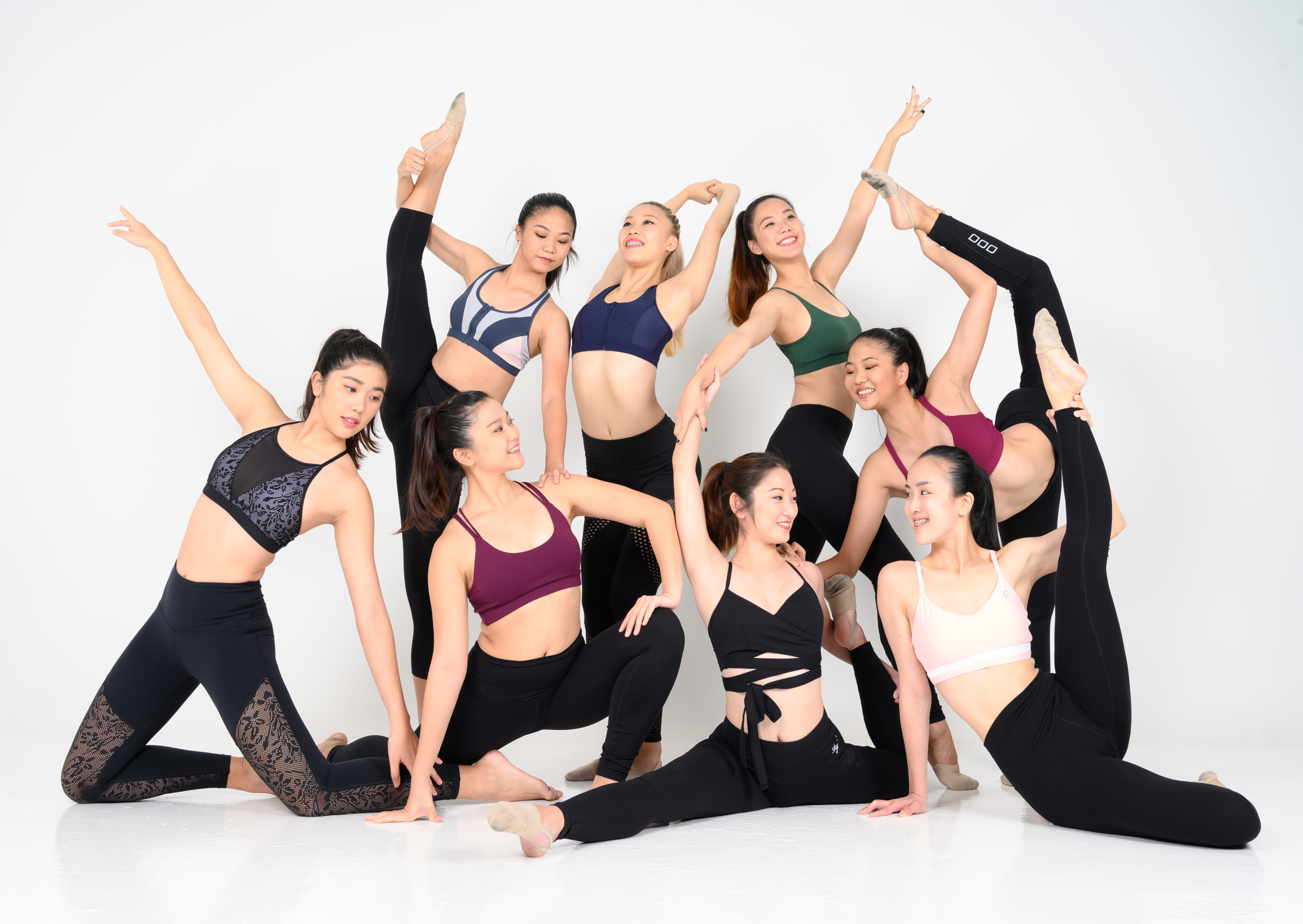 Photo by Shaun Ho (www.shaunho.com)
Photo by Shaun Ho (www.shaunho.com)
But it isn't only good for her — recently-retired national rhythmic gymnast Phebe Lau said she stopped rhythmic gymnastics because she sustained a ligament tear in her right ankle that required surgery, and the rigorous training pace didn't allow for sufficient rest and recovery.
She, too, spoke of the much greater accessibility of AGG:
"Because it doesn't require as much like of the flexibility and everything as rhythmic gymnastics, I feel like even though you're not born to be, like, very flexible, or maybe your apparatus skills in rhythmic gymnastics may not be the best, with AGG because it's freehand, you don't require this kind of flexibility and everything.
So even though you don't have it (natural flexibility), it's possible to train because getting just a normal split is not that hard to achieve with the proper training. So I feel like everyone can actually give it a try — that's what I really like about AGG because it's not about how talented you are, it's about how hard you want to work for it."
Hoping to raise S$30,000
Right now, Nomura says they're hoping to raise some money to defray the costs of sending the Singapore AGG teams to competitions and training.
Here's a rough breakdown of their costs at the moment, for the senior team:
1. Training fees (S$1,200 a month)
2. Cost of Training Camp in Japan, including flight and accommodation (S$2,000 per pax)
3. Cost of World Cup in Singapore (S$500 per pax)
4. Cost of World Championships in Spain, including flight and accommodation (S$4,000 per pax)
5. Coach and choreographer’s fees (S$5,000)
They haven't had much luck so far, though — their first round of fundraising via online platform Indiegogo garnered a paltry US$35, and so far, a second effort has only garnered US$15.
The team is organising a fundraising performance event on March 10, however, that will feature performances by all the competing AGG teams, at their usual training grounds at Shelton International College.
If you'd like to contribute to the girls' efforts and to help defray the costs of their training and competition, you can do so, and find more information, at their fundraising page here.
If you'd like to try out AGG for yourself, you can also find out more about classes (currently the team's training periods) here.
Top photo by Haruhiko Otsuka, courtesy of Singapore AGG team
If you like what you read, follow us on Facebook, Instagram, Twitter and Telegram to get the latest updates.
